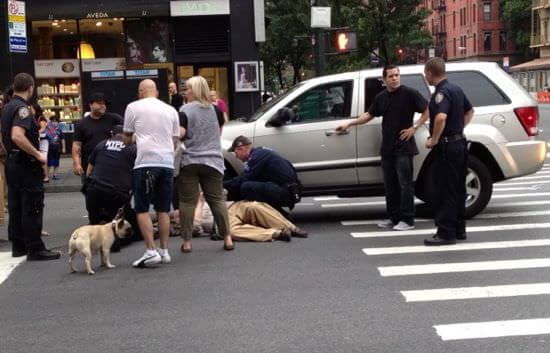In the orchestration of traffic, where order is maintained through adherence to rules, the failure to yield for emergency vehicles disrupts the harmony crucial for public safety. This article delves into the intricate details of this offense, exploring legal implications, traffic safety considerations, and the indispensable role of a New York lawyer in handling cases related to failure to yield for emergency vehicles to get website
In the pulsating rhythm of New York traffic, yielding for emergency vehicles is not just a legal requirement; it’s a pivotal element of maintaining public safety. The urgency of such yielding is underscored by the distinct legal consequences and potential traffic safety implications. When faced with a failure to yield ticket, engaging the expertise of a New York lawyer becomes imperative to navigate the legal intricacies and strategize a robust defense.
Understanding Failure to Yield for Emergency Vehicles Offenses
Legal Requirements for Yielding
Navigating the legal landscape involves understanding distinctive protocols for different emergency vehicles, the intersection with state traffic laws, and the critical element of driver awareness in ensuring a prompt and safe yielding process.
Common Instances of Violations
Challenges arise in high-traffic and emergency scenarios, requiring drivers to distinguish between audible and visual signals and navigate complex road configurations. Recognizing common instances of violations is essential for both drivers and their legal representatives.
Technological Enforcement Measures
The integration of surveillance cameras and automated systems has transformed enforcement. Analyzing challenges in contesting technological evidence and formulating legal strategies to dispute failure to yield tickets ensures a comprehensive approach to handling such cases.
The Legal Landscape in New York
New York Vehicle and Traffic Law
The legal framework encompasses statutory provisions on emergency vehicle right of way, the gradation of penalties based on violation severity, and the interplay with other traffic offenses. Understanding these nuances is pivotal for drivers facing failure to yield tickets.
Law Enforcement Tactics
Law enforcement exercises discretion in issuing tickets, gathers evidence for failure to yield cases, and exhibits variability in enforcement across jurisdictions. Awareness of these tactics is crucial for drivers contesting failure to yield charges.
The Role of a New York Lawyer
A New York lawyer specializing in traffic offenses brings expertise to the table, crafting strategic defenses and navigating administrative processes. Their role extends beyond legal representation, encompassing a holistic approach to addressing failure to yield cases.
Consequences of Failure to Yield for Emergency Vehicles Tickets
Fines and Penalties
Immediate monetary consequences accompany failure to yield tickets. Understanding the intricacies of fines, the accumulation of license points, and the potential impact on insurance premiums provides drivers with a comprehensive view of the repercussions.
Long-Term Driving Record Ramifications
Beyond immediate penalties, failure to yield violations leave a lasting mark on driving records. Recognizing the effects on subsequent traffic offenses and implementing strategies to minimize this impact is crucial for individuals facing such charges.
Safety Considerations and Public Awareness
Prompt yielding for emergency vehicles is not just a legal obligation; it’s a critical element of public safety. Analyzing statistics on accidents related to failure to yield and participating in community initiatives for enhanced driver awareness contribute to a broader understanding of the consequences.
Engaging a New York Lawyer for Failure to Yield Cases
Research and Selection
Choosing the right New York lawyer involves meticulous research, identifying expertise in failure to yield cases, evaluating success records, and ensuring accessibility with transparent communication.
Case Evaluation and Strategy Discussion
A comprehensive analysis of the failure to yield ticket, identification of legal defenses, and building a customized defense strategy form the foundation of effective representation in these cases.
Strategic Partnership in Defense
Engaging a New York lawyer is not just a legal transaction; it’s a strategic partnership. Their role encompasses courtroom advocacy, negotiation, and proactive measures to minimize penalties. Utilizing their legal expertise ensures a robust defense in the face of failure to yield for emergency vehicles tickets.




